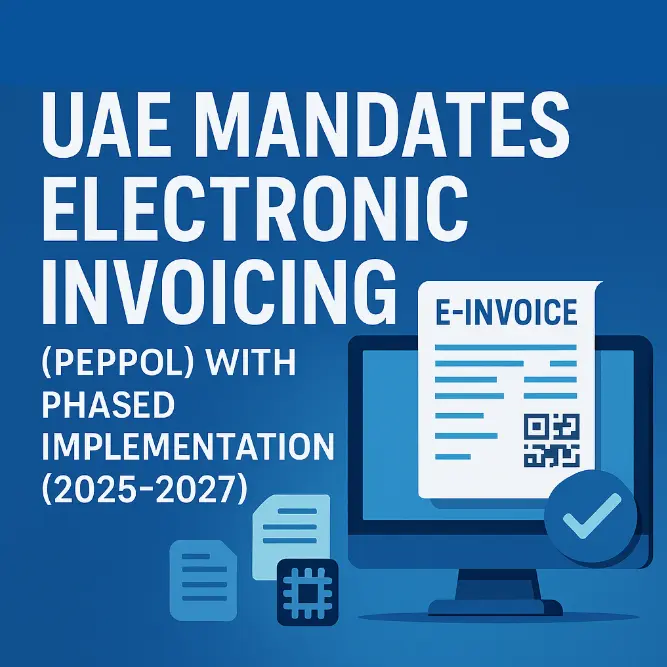Blog
- home
- >
- Blog
UAE Corporate Tax on Foreign Income: Exemptions, Compliance & Double Taxation Relief 2025 Guide
UAE Corporate Tax on Foreign Income: Exemptions, Compliance & Double Taxation Relief 2025 Guide
Navigating the UAE’s Taxation of Foreign-Sourced Income
The UAE’s introduction of its Corporate Tax regime in 2023 marked a strategic alignment with global fiscal standards. Central to this framework are the regulations governing foreign-sourced income, designed to balance competitiveness with compliance. This guide outlines key rules for resident and non-resident entities, exemption criteria, and strategies to mitigate double taxation.
Taxation for UAE Residents: Juridical and Natural Persons
Juridical Persons (Companies)
UAE-resident companies (incorporated or effectively managed in the UAE) are taxed on worldwide income, including foreign-sourced revenue such as dividends, royalties, and overseas branch profits. To prevent dual taxation, the UAE provides two critical exemptions:
Participation Exemption:
Criteria:
- Minimum 5% ownership in a foreign subsidiary or an investment of AED 4 million.
- Shares must be held for at least 12 months.
- Applicability: Exempts dividends and capital gains from qualifying subsidiaries.
Foreign Permanent Establishment (PE) Exemption:
Excludes income from foreign branches/PEs if taxed at 9% or higher in the foreign jurisdiction.These exemptions ensure tax efficiency for businesses with international operations.
Natural Persons (Individuals)
Individuals conducting business in the UAE are taxed on foreign income only if generated through UAE-based activities (e.g., consultancy services via a UAE-registered firm). Exemptions apply to:
-
Personal investments (e.g., global stock portfolios).
-
Real estate income outside the UAE.
-
Employment wages.
-
Businesses with annual turnover below AED 1 million.
Taxation for Non-Residents
Non-residents (foreign entities or individuals without UAE residency) are taxed solely on UAE-sourced income unless they establish a Permanent Establishment (PE).
-
With a UAE PE: Tax applies to foreign income attributable to the PE’s activities (e.g., interest from loans issued by a Dubai branch to overseas clients).
-
Without a UAE PE: Taxation is limited to UAE-derived income (e.g., local property rentals or service fees tied to UAE operations).
This structure ensures fair contribution without deterring cross-border engagements.
Mitigating Double Taxation: Exemptions and Credits
The UAE employs two mechanisms to alleviate dual tax claims:
- Foreign Tax Credit (FTC):
Reduces UAE tax liability by the lower of foreign taxes paid. UAE tax is due on the same income, for example: A company paying 10% foreign tax offsets it against UAE obligations.
- Double Taxation Agreements (DTAs):
Over 130 treaties cap withholding taxes on dividends, interest, and royalties (often at 5%), providing tax sparing credits for income benefiting from foreign incentives.
Compliance Thresholds and Obligations:
For Resident Entities:
-
Maintain 5% ownership or AED 4 million investment in foreign subsidiaries for Participation Exemption.
-
Ensure foreign PEs meet the 9% minimum tax rate.
For Individuals:
-
Demonstrate a direct link between foreign income and UAE business activities.
-
Monitor turnover to remain below the AED 1 million exemption threshold.
For Non-Residents:
-
Assess whether operations create a taxable PE (e.g., physical offices, dependent agents).
Why Compliance Matters:
The UAE’s Corporate Tax regime aligns with global transparency initiatives like the OECD’s BEPS guidelines. Key implications include:
-
Strategic Structuring: Align cross-border operations with Participation Exemption or DTA benefits.
-
Risk Mitigation: Ensure foreign branches meet the 9% tax threshold to qualify for exemptions.
-
Audit Preparedness: Maintain records of foreign tax payments, currency conversions, and exemption eligibility.
Documentation Essentials
Businesses must retain:
-
Proof of foreign tax payments (e.g., tax residency certificates).
-
Currency conversion records using Central Bank-approved rates.
Conclusion
The UAE’s Corporate Tax framework balances fiscal efficiency with global integration, exempting qualifying foreign income and leveraging DTAs to minimize complexity. Proactive compliance with thresholds, meticulous record-keeping, and strategic use of exemptions are critical for optimizing tax outcomes.
Consult a DPTC Representative for Tailored Guidance
Navigating UAE tax rules demands expertise, particularly for cross-border operations. DP Taxation Consultancy, a leading UAE tax consultancy, offers specialized support in:
-
Corporate Tax compliance and exemption applications.
-
Structuring foreign investments and PEs.
-
Audit preparation and dispute resolution.
Why Partner with DPTC?
Our 20+ years of expertise in UAE tax laws and international DTAs, allows us to create tailored strategies that aim to align with evolving regulations and different company strategies.
Visit dptc.ae to connect with our experts and safeguard your interests in the UAE’s dynamic tax landscape.
Contact us today: bd@dptc.ae
📞 Call us: +971 0509434155
- Dhana Pillai




